
That is the inheritance and profound application of President Ho Chi Minh 's thought "With the unchanging, responding to all changes" - a profound thought, a consistent guiding principle, fostering the mettle, intelligence and resilient qualities of the Vietnamese people.

Ho Chi Minh's thought on "Remaining constant, responding to all changes"
On May 31, 1946, before leaving for an official visit to France as a distinguished guest, President Ho Chi Minh told Acting President Huynh Thuc Khang: “Because of the national mission assigned to me, I have to go away for a while. At home, I rely on you and your comrades to solve all difficulties. I hope you will be steadfast and adapt to all changes.”
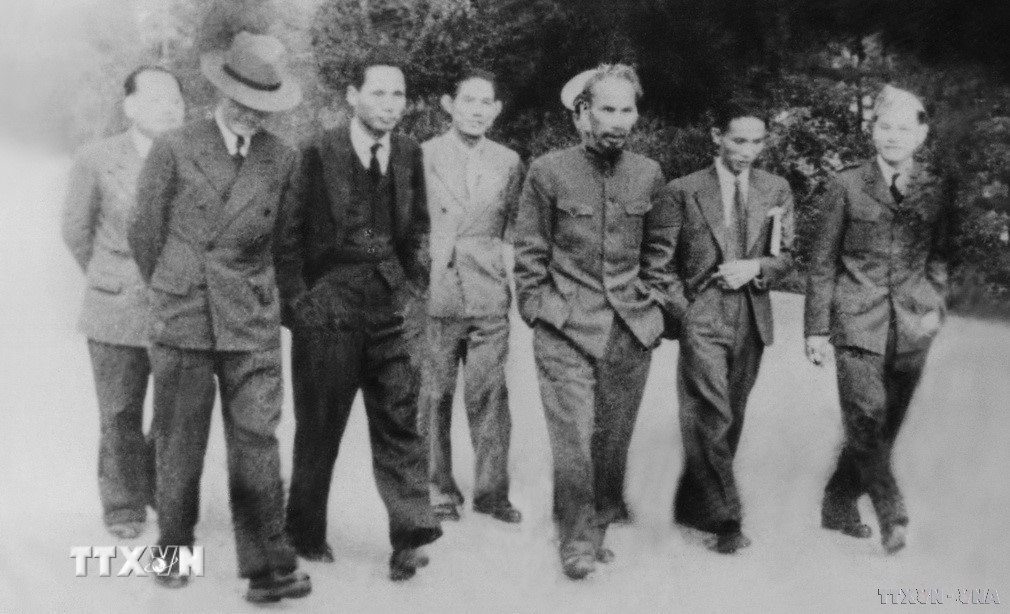
President Ho Chi Minh and the Vietnamese delegation attending the Fontainebleau Conference (France) in 1946. (Photo: VNA)
When saying this, we understand that President Ho Chi Minh wanted to emphasize that, in carrying out revolutionary tasks, we must know how to be flexible, proactive, creative, and adaptable from specific situations and circumstances based on unchangeable contents; not to trade off or lose the big, fundamental things for small, trivial things; must stand on the standpoint and viewpoint of unchangeable things to observe, harmonize, and regulate ourselves and all things in accordance with the objective laws of motion.
In Ho Chi Minh's thought, "dị bất biến" means maintaining principles, ultimate goals, and core interests that cannot be compromised.
From his revolutionary practice, those “unchangeable” values include national independence, territorial integrity, Party leadership, and people’s mastery. This is the “common denominator” throughout all circumstances.
Because as President Ho Chi Minh once affirmed: "Nothing is more precious than independence and freedom." That ideology is the red thread running through all fighting strategies, the foundation for positioning national interests in each period.
Along with “the unchanging,” Ho Chi Minh's ideology requires always being “adaptive to all changes” - flexible in action methods, applying intelligence to effectively respond to changing realities.
“Adapting to all changes” does not mean changing the goal, but rather innovating the method, strategy, and implementation organization, depending on specific opportunities and conditions.
Thus, “With the unchanging, respond to the ever-changing” according to President Ho Chi Minh’s viewpoint means using “the unchanging” (the unchanging) to respond to the “ever-changing” (the ever-changing). We must be steadfast in principle but flexible in strategy.

The key to success in every stage of revolution
The idea of "Remaining constant, responding to all changes" was not only generalized by President Ho Chi Minh in theory, but was also vividly and consistently expressed by him throughout his revolutionary career.
In fact, President Ho Chi Minh devoted his whole life to fighting for and preserving the "unchangeable" values: independence for the nation, territorial integrity, freedom and happiness for the people.
Right in the early stages after the August Revolution of 1945, our country was in a precarious situation: famine, illiteracy, and foreign invaders all threatened at the same time.
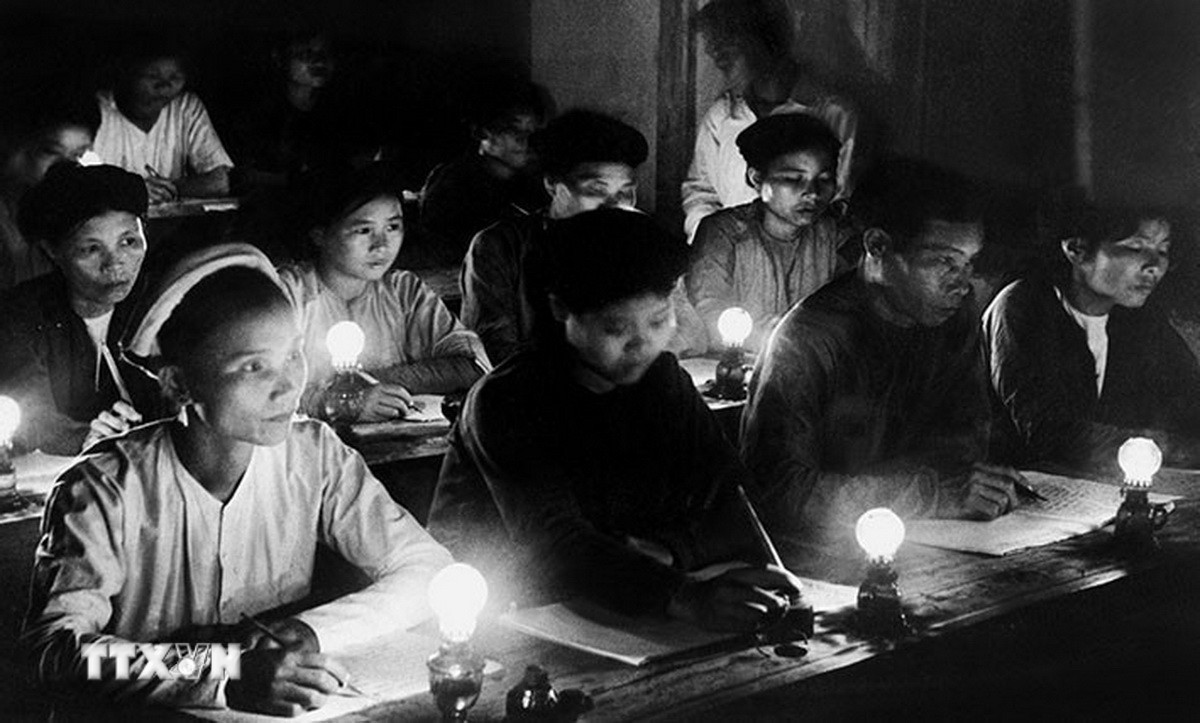
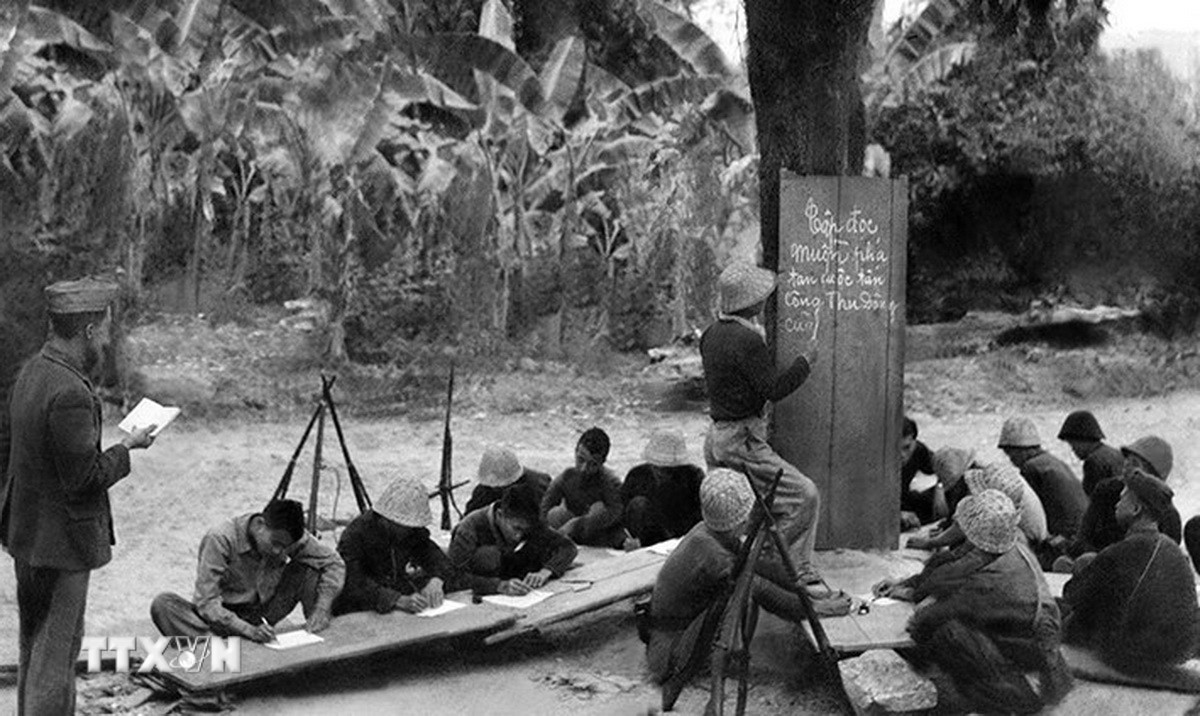
Left photo: A "Popular Education" class in Hanoi in the early days of independence. Right photo: A crash course in "Killing Ignorance" during a break in the training ground of soldiers and militia. (Photo: VNA archive)
In that context, instead of direct confrontation, the Party and President Ho Chi Minh applied a flexible strategy: signing the Preliminary Agreement on March 6, 1946 with France, accepting temporary tactical concessions in exchange for valuable peace time to consolidate the young revolutionary government and prepare the people's resistance force.
Historical facts have proven that thanks to the high level of "adaptation to all changes", only one year later, our nation entered the nationwide resistance war against French colonialism with its forces, position and people's hearts having been greatly strengthened.
It is a typical example of the smooth combination of firm principles and flexible strategies - a vivid expression of the idea of "Responding to all changes with the unchanging."
During the two resistance wars against French colonialism and American imperialism, the Party continued to creatively apply the idea of "Remaining constant, responding to all changes".
The “unchangeable” goal at this time was “rather sacrifice everything, definitely not lose the country, definitely not become slaves,” “Vietnam is one, the Vietnamese people are one,” “all to defeat the American invaders.”
From that spirit, our Party has firmly adhered to the line of all-people, comprehensive, long-term resistance, relying mainly on our own strength.
But in the implementation process, the strategy was always flexible and adaptable: from seeking international aid, building a broad national solidarity front, to the strategy of "fighting while negotiating" in the Geneva Agreement (1954) and the Paris Agreement (1973)...
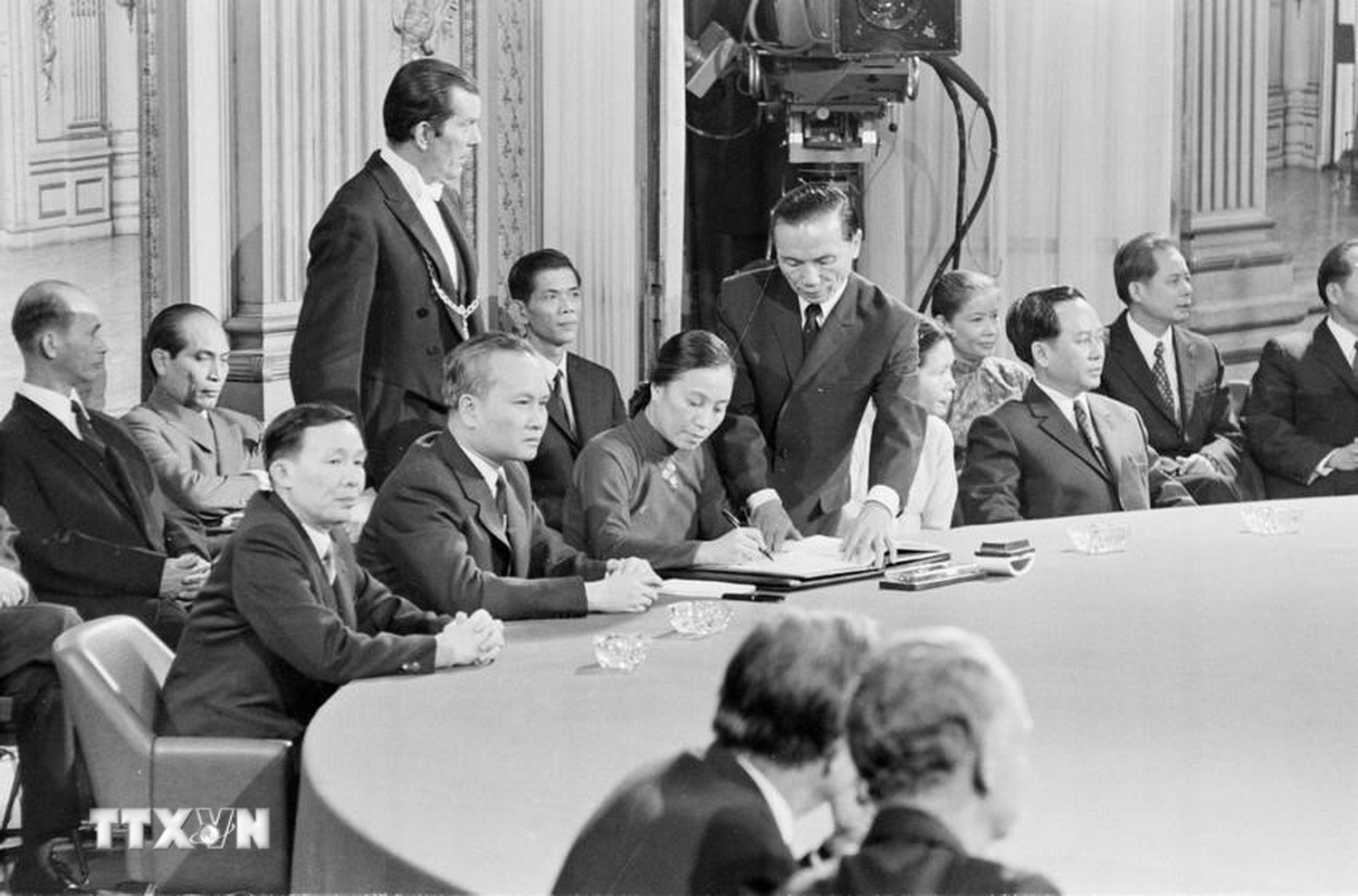
Minister of Foreign Affairs of the Provisional Revolutionary Government of the Republic of South Vietnam Nguyen Thi Binh signs the Paris Agreement on ending the war and restoring peace in Vietnam, January 27, 1973, at the International Conference Center in Paris, France. (Photo: Van Luong/VNA)
All of these demonstrate our Party's "adaptive" ability to lead the whole country step by step to complete the cause of national liberation, national unification and transitioning the whole country to socialism.
After the country was reunified and entered a new stage of development, Vietnam faced enormous challenges: socio-economic crisis, international embargo... In that context, our Party once again demonstrated the spirit of "Remaining steadfast, responding to all changes" when initiating the Doi Moi process from the 6th Congress in 1986.
The “unchangeable” principle - firmly upholding national independence and socialism, for the goal of a rich people, a strong country, democracy, equality, and civilization - is maintained. But in terms of strategy, we proactively innovate economic thinking, open up integration, and multilateralize and diversify international relations.
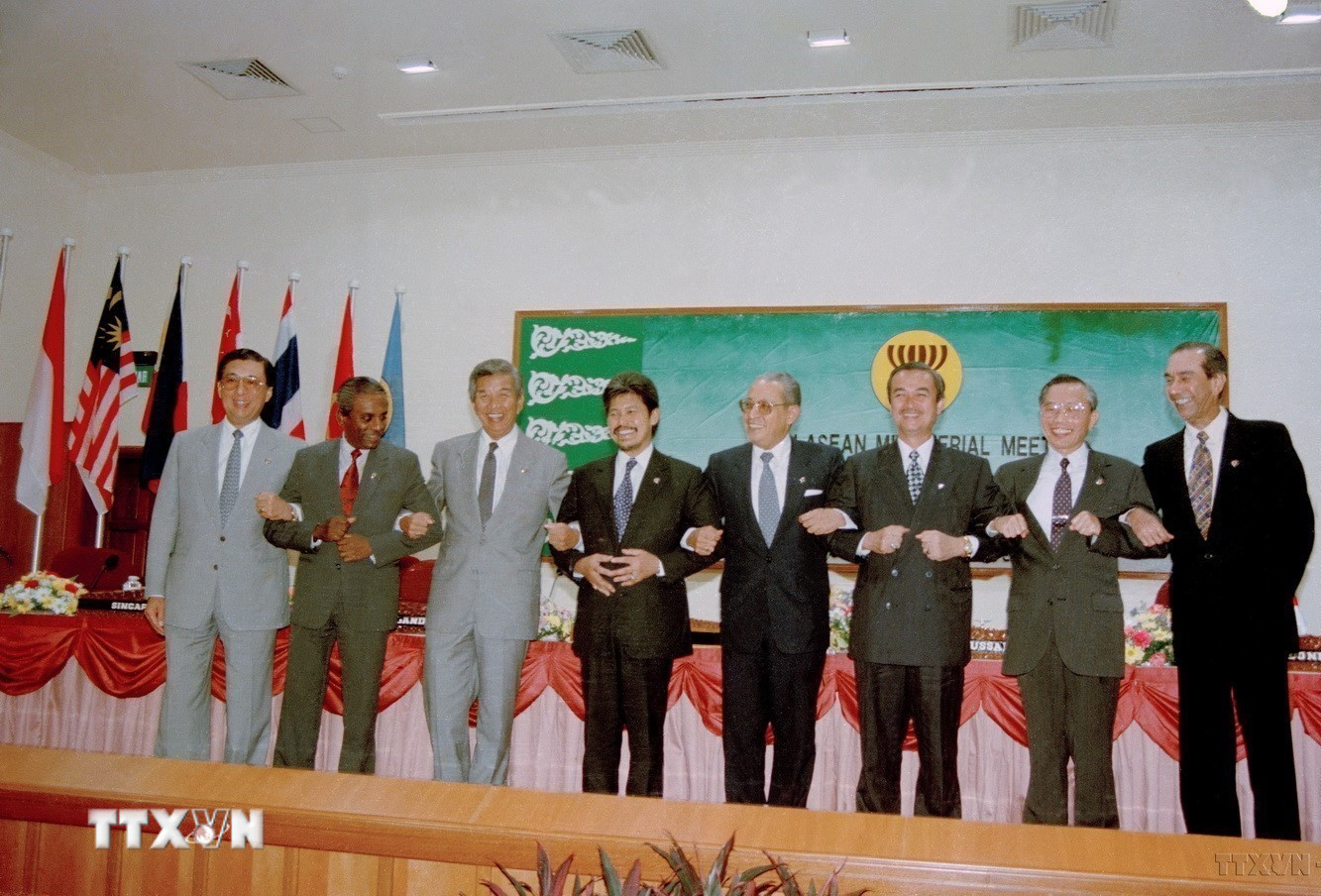
Foreign Minister Nguyen Manh Cam (second from right), ASEAN Secretary General and ASEAN Foreign Ministers at the meeting to officially admit Vietnam as the 7th member of ASEAN, on July 28, 1995, in the capital Bandar Seri Begawan (Brunei). (Photo: Tran Son/VNA)
Thanks to this correct policy, Vietnam has gradually overcome the crisis, joined ASEAN (1995), WTO (2007), participated in many new generation FTAs, and become an active member of many international organizations; at the same time, achieved great and comprehensive achievements in all fields such as economy, culture, society, education, health...
Nowadays, in the context of globalization, strategic competition between major countries is increasingly complex, the 4.0 Industrial Revolution is developing rapidly, the idea of "Remaining constant, responding to all changes" becomes more and more valuable.
That is to uphold the principle: "national interests are paramount," and act flexibly in every relationship: from comprehensive strategic partnerships with major countries to sub-regional and regional cooperation; from adapting to climate change to handling non-traditional security issues.

"Guidelines" in foreign affairs
Vietnam's consistent and continuous foreign policy is independence, self-reliance, multilateralization, diversification of relations, being a friend, a reliable partner, a responsible member of the international community, proactively and actively integrating deeply and comprehensively into the international community.
Vietnam's foreign policy principles and motto are to ensure the highest national interests on the basis of the United Nations Charter and international law; to resolutely and persistently fight to firmly protect independence, sovereignty, unity, and territorial integrity, "Respond to all changes with the unchangeable" to maintain peace and stability, build and defend the Fatherland.
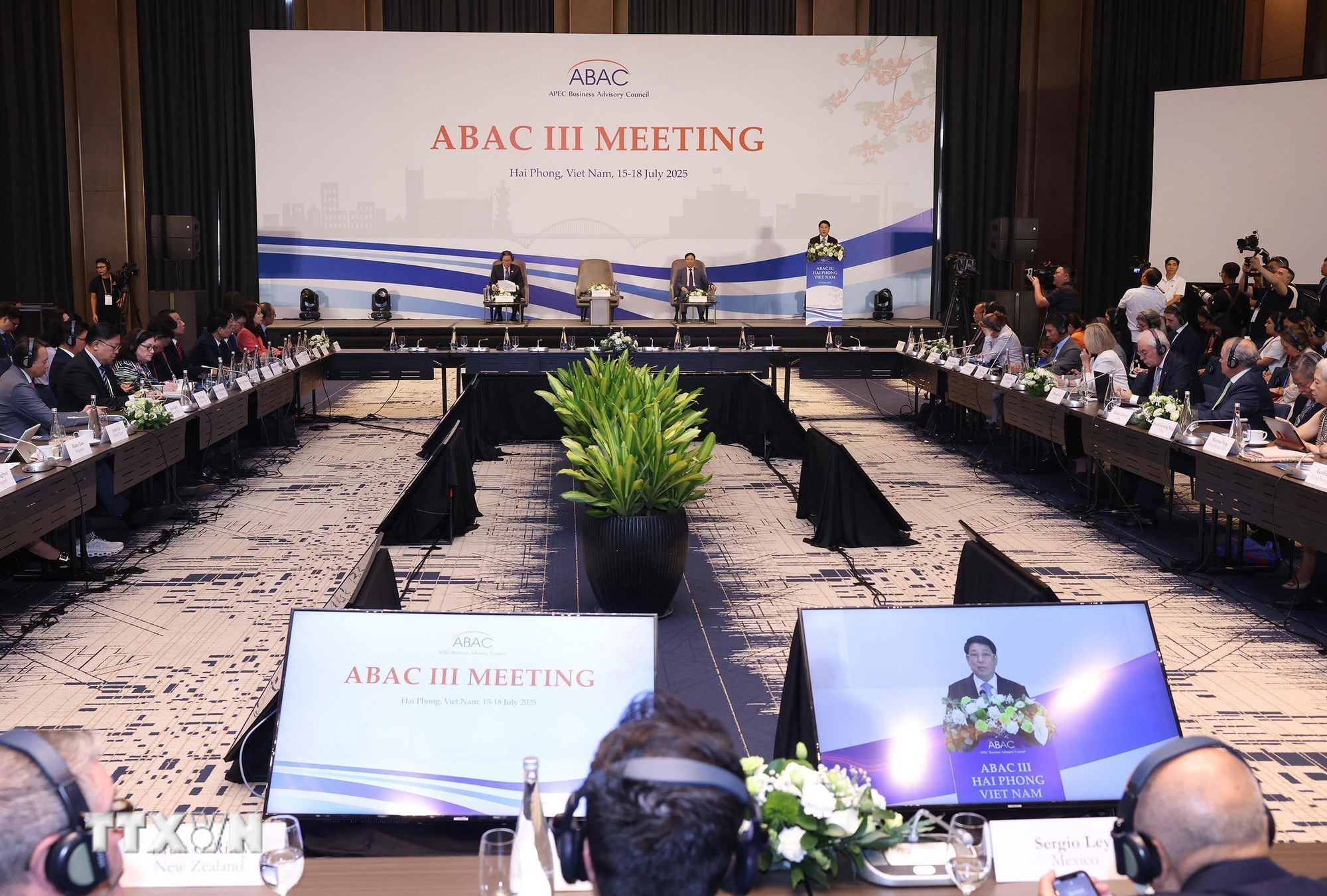
President Luong Cuong delivers a speech at the opening session of the 3rd meeting of the APEC Business Advisory Council (ABAC III). (Photo: Lam Khanh/VNA)
Over the past decades, our Party has creatively applied Ho Chi Minh's thought on "Regarding the unchanging, responding to all changes" in directing important foreign affairs issues, properly handling relationships, and accurately assessing and forecasting the situation.
Thanks to that, Vietnam has not only maintained "peace at home and peace at home" to develop the country in an international context undergoing great and complex changes, but has also raised it to new heights through increasingly more substantial and effective cooperation in relations with traditional friends, neighboring countries, major powers and other important partners.
Not only is it a guiding principle in national governance, "Responding to all changes with the unchanging" has also become a distinctive feature in Vietnam's diplomatic activities.
To date, Vietnam has established diplomatic relations with 194 countries, built a network of strategic partnerships and comprehensive partnerships with 37 countries, including all major countries and all five permanent members of the United Nations Security Council; and is an active member of more than 70 international and regional organizations.
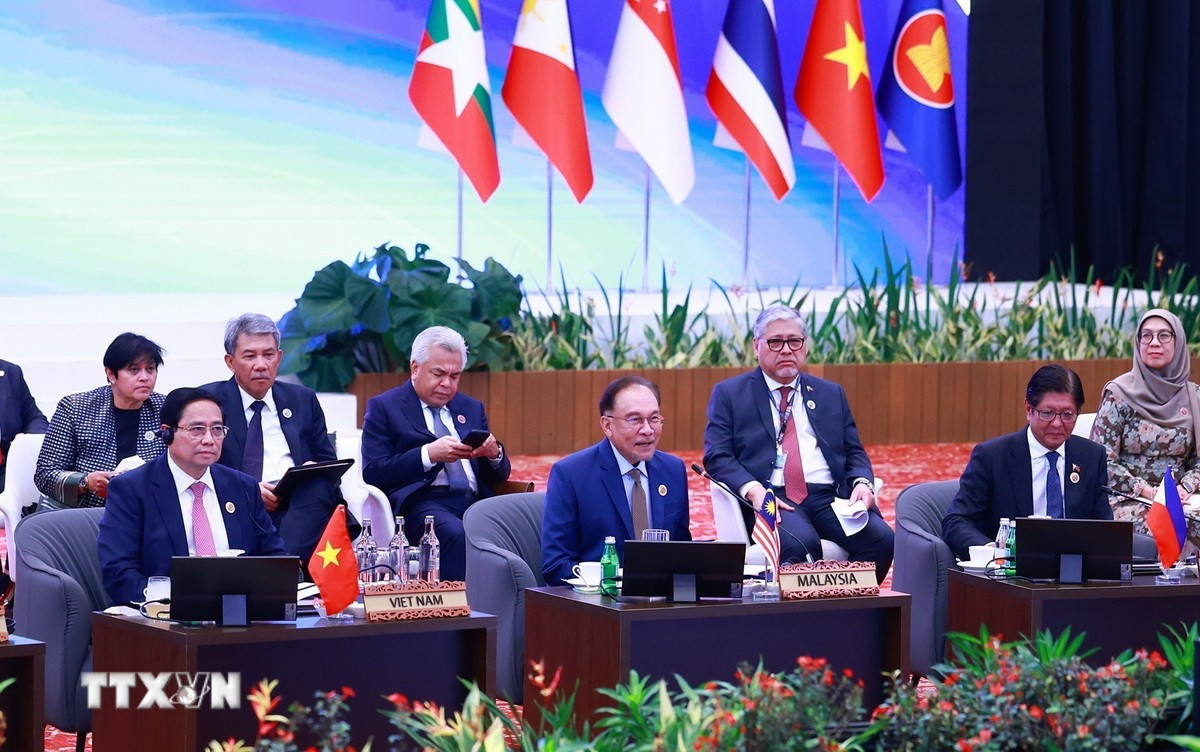
Prime Minister Pham Minh Chinh attends the ASEAN Leaders' Dialogue with representatives of the ASEAN Inter-Parliamentary Assembly (AIPA). (Photo: Duong Giang/VNA)
Our Party has also established relations with 259 political parties in 119 countries. Vietnam's position, prestige and voice have been prominently affirmed at many important multilateral forums and mechanisms such as ASEAN, the United Nations, the Mekong sub-region, APEC, AIPA, IPU...
In addition to continuing to undertake important international responsibilities, Vietnam has proposed many initiatives and solutions to promote cooperation and make responsible contributions to common world issues such as disease prevention and control, natural disasters, climate change, food security, water security, peacekeeping, etc.
It can be affirmed that President Ho Chi Minh's ideology of "Remaining constant, responding to all changes" has become a guiding principle in modern foreign policy, helping Vietnam maintain independence, enhance national position and actively contribute to peace, cooperation and development in the region and the world.
Eighty years since the August Revolution and National Day September 2, 1945, President Ho Chi Minh's ideology of "Responding to all changes with the unchanging" has always been the "compass" in every stage of the country's development.
In any circumstance, our Party always upholds its core values, while flexibly adapting to steer the revolutionary boat to overcome all challenges and reach victory. That ideology continues to be the guiding light for our country to firmly step into the era of national development./.
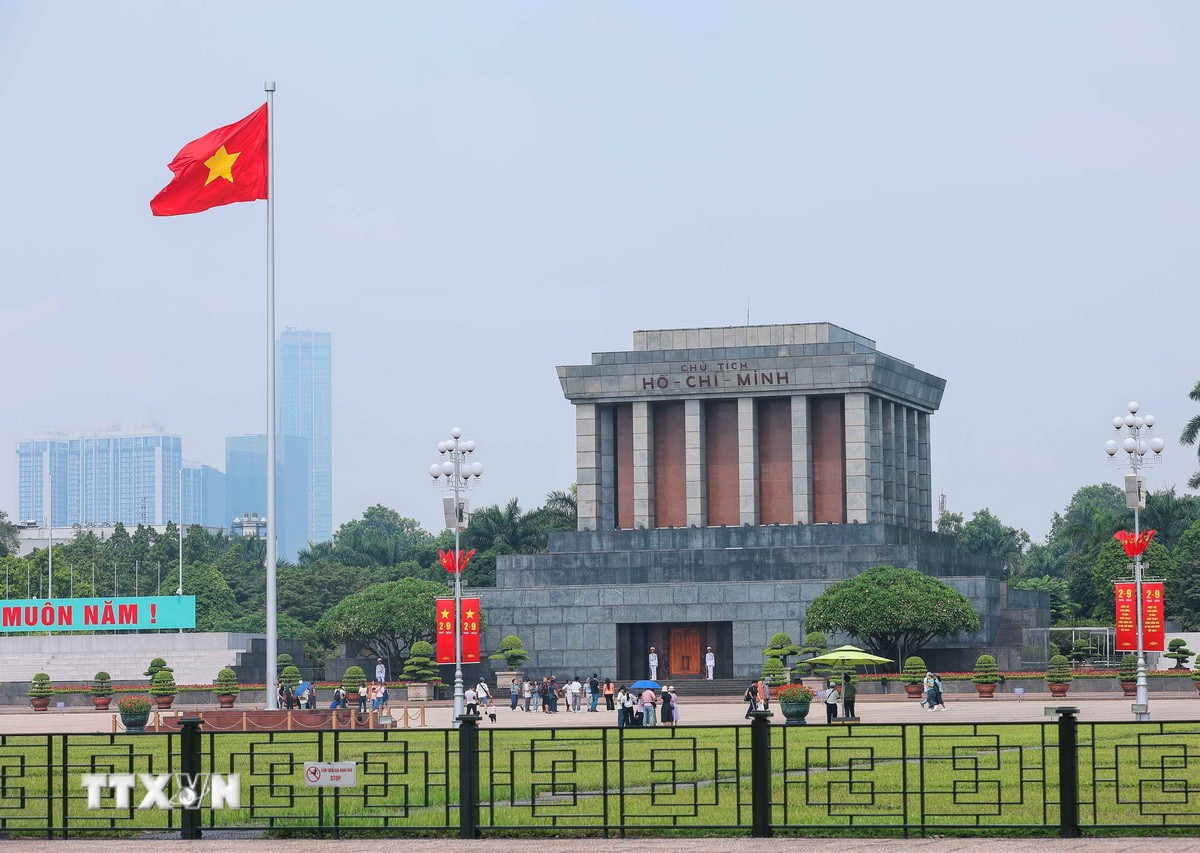
President Ho Chi Minh's Mausoleum is brightly decorated with flags and banners on the occasion of National Day, September 2. (Photo: Hoang Hieu/VNA)
Source: https://www.vietnamplus.vn/tu-tuong-di-bat-bien-ung-van-bien-anh-sang-soi-duong-80-nam-cach-mang-viet-nam-post1054054.vnp


![[Photo] General Secretary To Lam, Secretary of the Central Military Commission attends the 12th Party Congress of the Army](https://vphoto.vietnam.vn/thumb/1200x675/vietnam/resource/IMAGE/2025/9/30/9b63aaa37ddb472ead84e3870a8ae825)
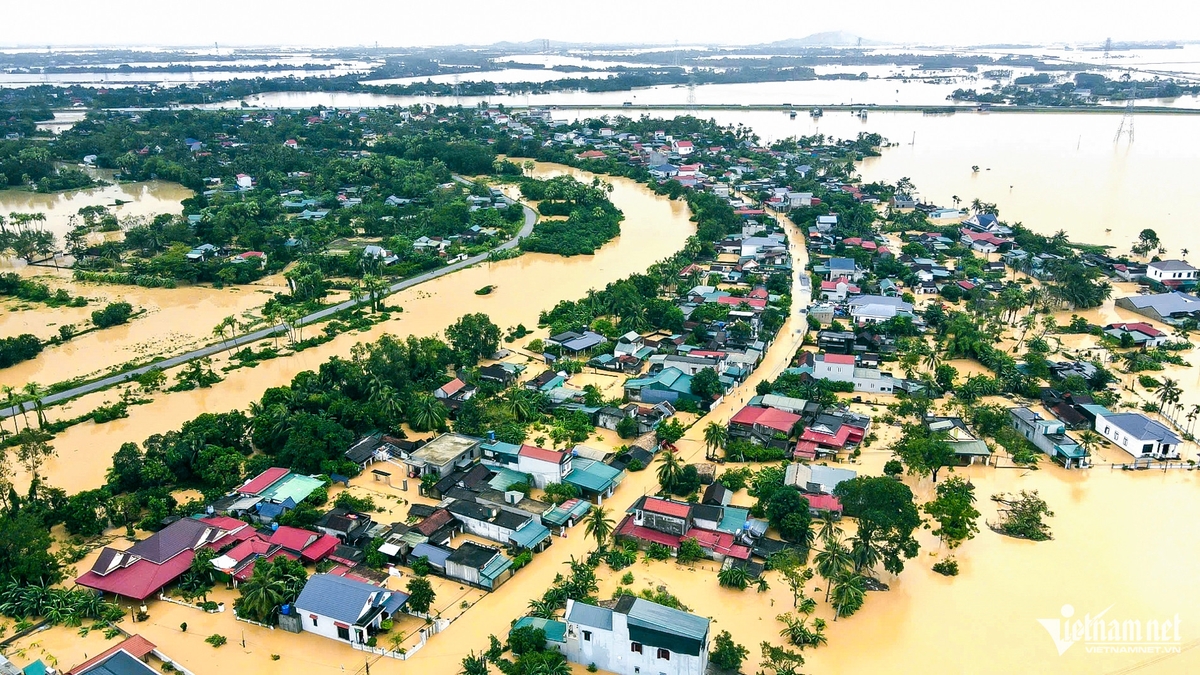
![[Photo] Panorama of the cable-stayed bridge, the final bottleneck of the Ben Luc-Long Thanh expressway](https://vphoto.vietnam.vn/thumb/1200x675/vietnam/resource/IMAGE/2025/9/30/391fdf21025541d6b2f092e49a17243f)
![[Photo] President Luong Cuong receives President of the Cuban National Assembly Esteban Lazo Hernandez](https://vphoto.vietnam.vn/thumb/1200x675/vietnam/resource/IMAGE/2025/9/30/4d38932911c24f6ea1936252bd5427fa)
![[Photo] Solemn opening of the 12th Military Party Congress for the 2025-2030 term](https://vphoto.vietnam.vn/thumb/1200x675/vietnam/resource/IMAGE/2025/9/30/2cd383b3130d41a1a4b5ace0d5eb989d)
![[Photo] The 1st Congress of Phu Tho Provincial Party Committee, term 2025-2030](https://vphoto.vietnam.vn/thumb/1200x675/vietnam/resource/IMAGE/2025/9/30/1507da06216649bba8a1ce6251816820)
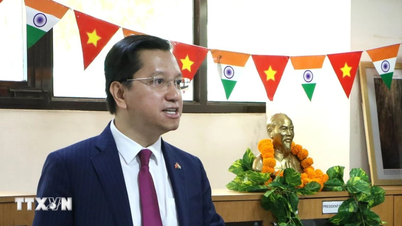



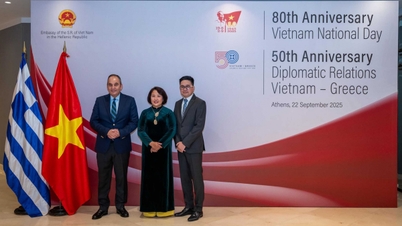

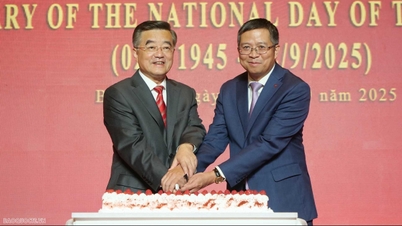


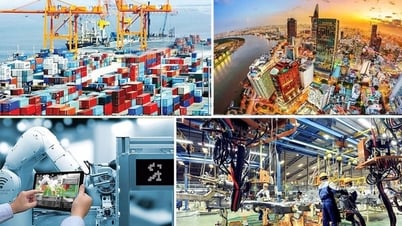



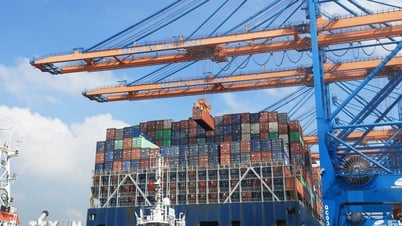
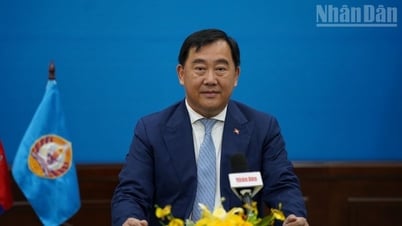






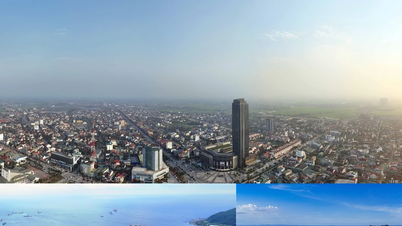
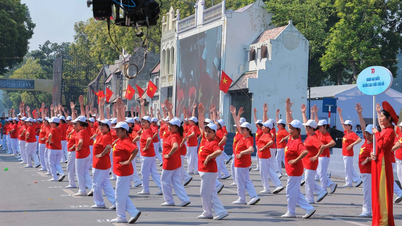
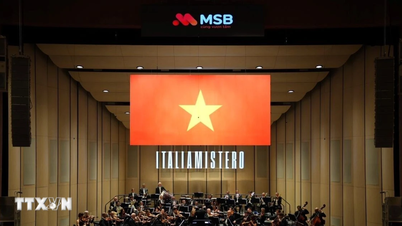
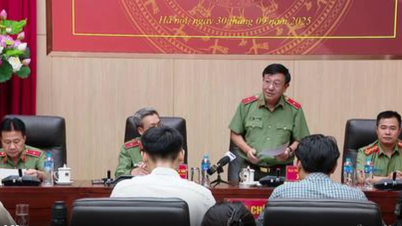
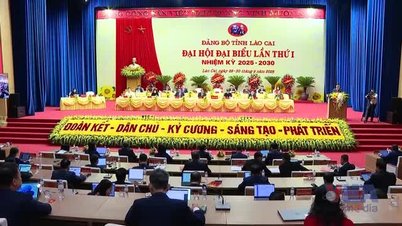































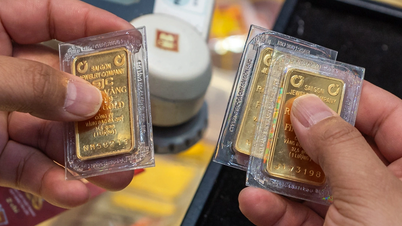














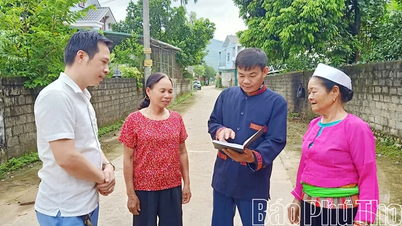

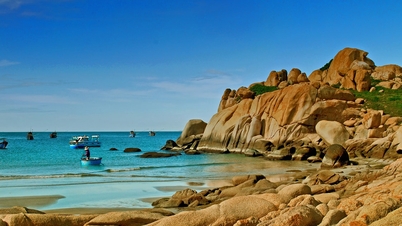

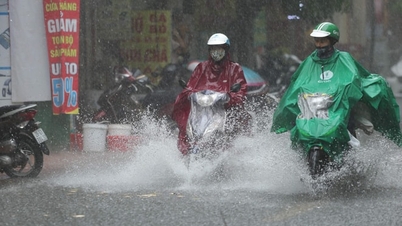

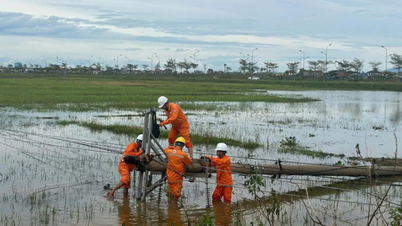
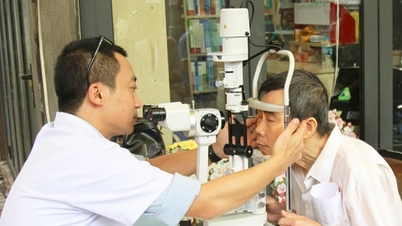

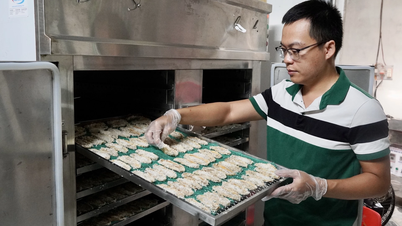















Comment (0)